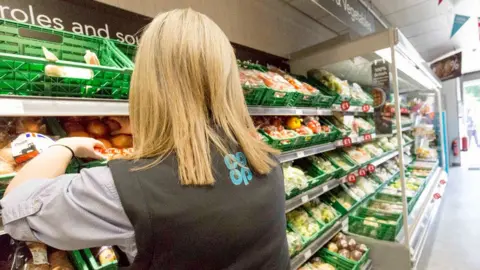In recent news, the Co-op has proactively responded to a hacking attempt by shutting down specific segments of its IT infrastructure. This strategic move, despite being precautionary, has reportedly had minimal repercussions on their operations, particularly concerning their call center and back-office functions. The Co-op’s quick action illustrates the growing vulnerability of retailers to cyber threats, showing that even established companies are not immune to such attacks.
As the Co-op took measures to safeguard its IT systems, it coincidentally aligns with a significant cyber incident affecting Marks & Spencer (M&S). The Metropolitan Police have confirmed that their cyber crime unit is currently investigating this major assault that has inflicted substantial damage on the M&S operations. However, the authorities noted that, at this stage, there is no indication that these two incidents are connected. Nonetheless, the concurrent timing of these events raises questions about whether there is a larger pattern of cyberattacks targeting the retail sector.
The Co-op operates over 2,500 supermarkets across the UK and runs roughly 800 funeral homes, along with providing provisions to Nisa shops. In light of the hacking incident, a spokesperson for the Co-op reassured the public that their shops and funeral homes continue to function as usual. The message highlighted that the company is dedicated to minimizing any service disruption during this urgent period. They expressed gratitude to their colleagues, members, partners, and suppliers for their understanding and continued support.
While the Co-op has faced issues, M&S has been struggling with the aftermath of its cyber incident for an extended period now, reportedly entering its second week of operational chaos. The retailer has yet to specify the exact cause of the outages affecting its online ordering systems, which have led to noticeable gaps on store shelves. Sources cited by the BBC have suggested that a type of ransomware known as DragonForce might be behind M&S’s ongoing troubles. The situation has undeniably caused significant financial distress, with experts indicating that M&S could be facing millions in lost sales due to these vulnerabilities.
Ciaran Martin, the founding Chief Executive of the National Cyber Security Centre (NCSC), weighed in on the situation, noting the serious implications of the attack on M&S. Such perspectives underline the gravity of the issue and the potential risks facing major retailers who rely heavily on digital infrastructure.
As consumers, it is crucial to stay informed about these incidents, as they not only impact the businesses involved, but also the customers who depend on their services. With operations faltering due to cyber threats, customers might experience disruptions in their shopping experience and availability of goods. Thus, both the Co-op and M&S currently stand as stark reminders of the ever-evolving landscape of cyber threats faced by retailers across the globe.
To maintain customer confidence, it is essential for these companies to communicate transparently regarding the steps they are taking to fortify their systems against potential future attacks. Encouragingly, despite the difficulties posed by the recent incidents, companies like the Co-op are taking proactive measures and ensuring that essential services remain uninterrupted.
As we acknowledge the severity of cyber attacks in today’s digital world, individuals must remain vigilant and ensure that businesses adapt and strengthen their cybersecurity protocols to avoid becoming the next target. The landscape is changing, and businesses must learn to navigate these complexities to continue serving their communities without disruption.



